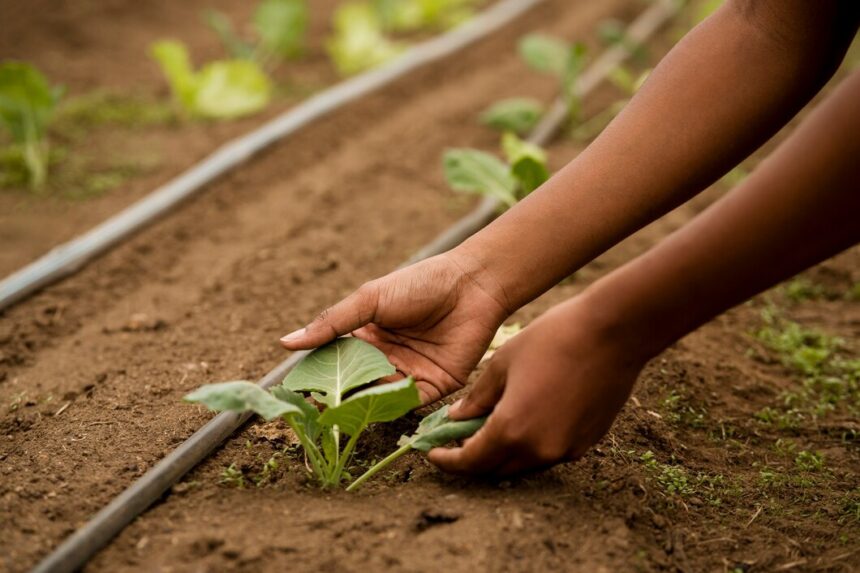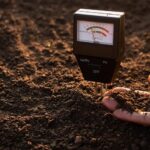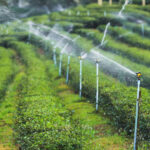Embarking on the journey of starting your own farm is an exciting and rewarding endeavor. Whether you’re cultivating vegetables, fruits, or herbs, understanding the basics of planting is essential for a successful harvest. Here’s a comprehensive guide with essential planting tips for beginners venturing into the world of farming.
1. Select the Right Location: Sunlight and Soil Quality
Choose a location that receives ample sunlight and has well-draining soil. Most crops thrive in full sun, so select a spot that gets at least 6-8 hours of direct sunlight daily. Additionally, conduct a soil test to assess its pH and nutrient levels, ensuring it is suitable for your chosen crops.
2. Plan Your Garden Layout: Optimize Space and Accessibility
Create a thoughtful layout for your farm, considering factors like crop spacing, pathways, and accessibility. Plan for efficient irrigation and ensure that each plant has sufficient space to grow without overcrowding. An organized layout facilitates easier maintenance and harvesting.
3. Start with Easy-to-Grow Crops: Build Confidence
As a beginner, start with crops that are known for being easy to grow and maintain. Vegetables like tomatoes, lettuce, and radishes, as well as herbs like basil and mint, are generally forgiving for novice farmers. Building confidence with these crops will set the stage for more ambitious ventures.
4. Understand Planting Seasons: Timing Matters
Different crops thrive in specific seasons. Understand the planting seasons in your region, distinguishing between cool-season and warm-season crops. Planting at the right time ensures optimal growth and a bountiful harvest.
5. Soil Preparation: Cultivate Healthy Ground
Prepare your soil by cultivating it to break up compacted areas and remove debris. Incorporate organic matter, such as compost or well-rotted manure, to improve soil structure and fertility. Healthy soil is the foundation for healthy plants.
6. Provide Adequate Water: Consistent and Timely Irrigation
Consistent and timely irrigation is crucial for plant health. Be mindful of the water needs of your crops, adjusting irrigation frequency based on factors like weather and soil moisture levels. Invest in efficient watering systems to optimize resource use.
7. Mulch for Moisture Retention: Suppress Weeds Naturally
Applying a layer of mulch around your plants helps retain soil moisture, suppresses weeds, and moderates soil temperature. Organic mulch, such as straw or wood chips, is an excellent choice for natural weed control and moisture retention.
8. Pest Management: Monitor and Act Early
Keep a close eye on your plants for signs of pests. Regular monitoring allows you to detect issues early and implement appropriate pest management strategies. Consider natural methods like companion planting and introducing beneficial insects to maintain a balanced ecosystem.
9. Practice Crop Rotation: Prevent Soil-Borne Diseases
Rotate your crops each season to prevent the buildup of soil-borne diseases and pests. Crop rotation helps maintain soil health and fertility while minimizing the risk of specific issues associated with continuous cultivation of the same crops.
10. Pruning and Training: Shape Healthy Plants
Learn the basics of pruning and training your plants to promote healthy growth. Removing dead or diseased branches, as well as training certain crops to grow vertically, enhances air circulation and sunlight exposure, reducing the risk of diseases.
11. Harvest at the Right Time: Peak Flavor and Nutrition
Harvest your crops at the right time for peak flavor and nutritional value. Each crop has its own harvesting requirements, so familiarize yourself with the optimal harvest window for the plants you’re growing.
12. Keep Learning: Embrace Continuous Improvement
Farming is a continuous learning process. Stay curious and seek knowledge through books, online resources, and engagement with experienced farmers. Embrace a mindset of continuous improvement to refine your skills and enhance your farming practices.
Starting your own farm is a journey filled with growth, challenges, and the joy of nurturing life from seed to harvest. By incorporating these essential planting tips, beginners can lay a strong foundation for a successful farming venture. Remember, patience and a love for learning are essential companions on this rewarding journey of cultivating the land and reaping the fruits of your labor.







